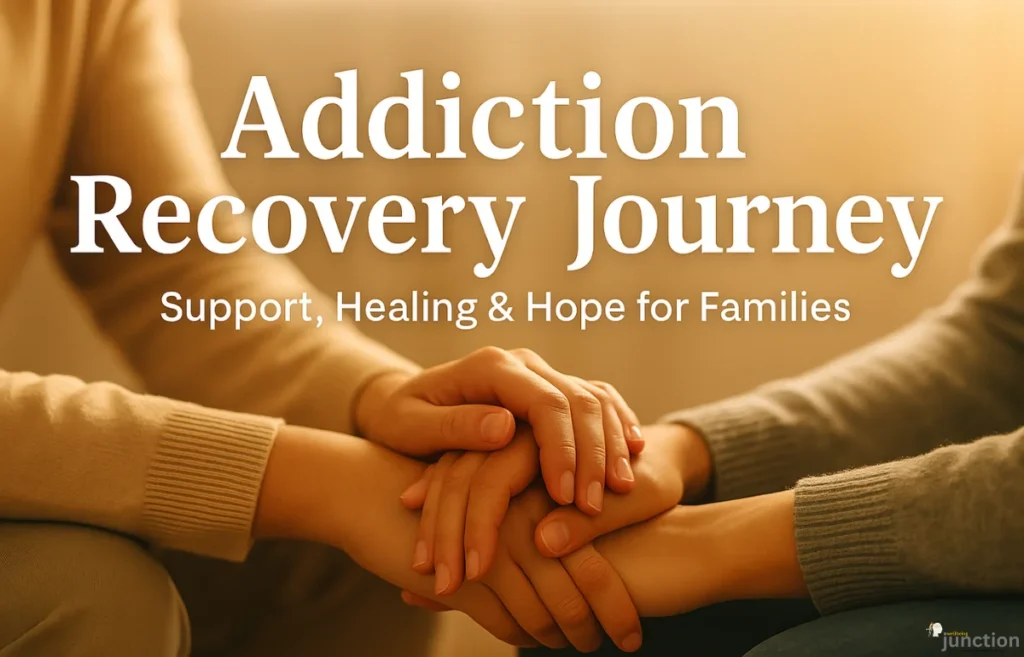
Seeing a loved one struggle with an addiction can be distressing, especially when you’re unsure how to support their addiction recovery. You wonder if your relationship dynamics somehow contributed to the situation. At the same time, you may feel the need to step in and save the day. It’s also possible to want to distance yourself from your loved one and their destructive behavior.
Lending support to someone with an addiction can be complex, just like the addiction itself. To the person about to enter recovery, actions such as holding an intervention may be perceived negatively. Changes in relationship dynamics, behaviors, and boundaries are also challenging to navigate for all parties involved. Nevertheless, families with the desire to help their loved one recover can learn what steps to take. Let’s examine a few of them now.
Engage Professional Assistance for Addiction Recovery
If you have concerns about a family member, it’s natural to want to say something. You’ve thought of approaching them about the subject, but recognize you may need to tread lightly. Confronting someone about an addiction related to substance abuse, food, or gambling is a high-stakes conversation. It’s emotionally charged, and the way the person with the suspected addiction will act is often unpredictable.
Because of this unpredictability, staging an intervention by yourself can put you and other family members in a precarious situation. It’s not atypical for individuals with addictions to think there are no issues with their behaviors. Getting them to realize how their behavior negatively impacts other family members is difficult without professional help. In addition, without professional guidance, people with addictions may not think they need treatment.
Engaging the assistance of a trained addiction specialist or counselor can help your loved one realize the need for change. It may start with substance abuse services and other treatment plans tailored to your family member’s addiction. Organizing an intervention or intervention-like conversations with the help of a pro means potential escalations can be managed effectively. Professionals trained in addiction recovery can keep the conversation focused on the facts.
Understand Recovery Isn’t One Size Fits All

As recently as 2023, 46 million U.S. adults had a substance abuse disorder. Nearly 19 million children live with a parent or caregiver with a substance abuse disorder, highlighting the risk for America’s youth. These children are more likely to have negative life experiences and develop substance-related addictions themselves.
While it’s not up to children to become parents, they may need to enlist the help of non-addicted family members. If the kids are too young to understand, it will likely be up to a non-addicted adult family member to intervene. Regardless of which family member initiates the intervention, the recovery process won’t be universal. Recognizing that there aren’t any cookie-cutter approaches to addiction treatment and recovery is imperative.
For instance, your loved one may need a combination of medication and therapy. A residential rehab program followed by intensive outpatient treatment may be the appropriate path. However, families will need to anticipate relapses and understand that recovery doesn’t end with the completion of a program. Recovery often extends throughout a person’s remaining lifespan, with an ongoing need for familial support.
Establish Boundaries
Boundaries exist in all types of relationships. These invisible barriers define what you’re able to contribute and what you find acceptable. In a work setting, an example of a boundary is your willingness to work overtime only once a month. With personal relationships, boundaries sometimes aren’t as firm and are more challenging to maintain.
Say your loved one is addicted to food. You observe their overeating and weight gain, which is leading to health-related concerns. While you understand the need for changes, you also bring problematic food items into the house. When your loved one asks for food you know they shouldn’t eat, you give it to them.
Setting new boundaries, such as changing what foods you buy for your loved one, can come as a shock. Your loved one may react in hurtful ways, such as accusing you of not caring for them anymore. But being firm about what you will accept and what you will not is important to your family member’s recovery process. Boundaries set guidelines and put consequences in place, which prevent enabling behaviors. Establishing boundaries also supports everyone’s well-being.
Use Positive Reinforcement

Addiction recovery isn’t linear. And the process doesn’t happen all at once. Think about changes you’ve tried to make in your life, such as saving or exercising more. Behavior modifications start and can continue to be small. There are some days when you revert to old habits like skipping the gym in favor of sleeping in.
Your loved one is going to exhibit similar patterns. But recognizing and reinforcing each small win can encourage them to stick with the process. Maybe they’ve gone a month without drinking alcohol. Celebrate this, even if it’s as simple as stating you’re proud of them and you’re in their corner.
Depending on the boundaries you’ve set, positive reinforcement can be exchanged over a phone call or a brief get-together. Express what changes in them you’ve observed while avoiding critiques. In the long run, positive reinforcement tends to be more effective than negative reinforcement. It’s like the boss who tells you everything you’re doing wrong, no matter how small. You’re more likely to strive when there’s appreciation for your accomplishments.
Supporting a Loved One’s Addiction Recovery
It can be challenging to navigate a loved one’s addiction and subsequent recovery. You want your family member to know you’re there for them, but that there may be limits to what you’ll tolerate. A system of checks and balances can be imperative, yet it’s best implemented with professional guidance. You can’t control a family member’s treatment or recovery process, but you can safely encourage it.

